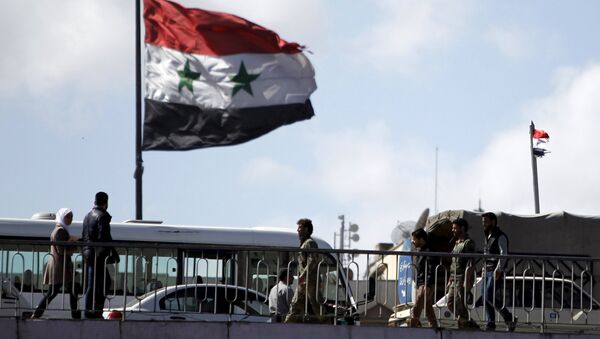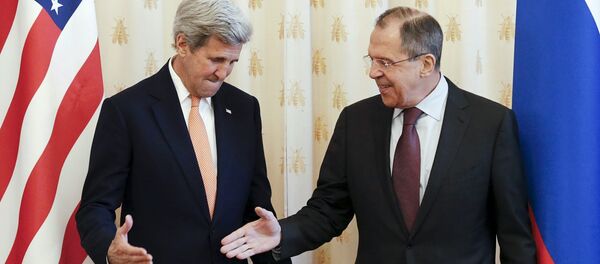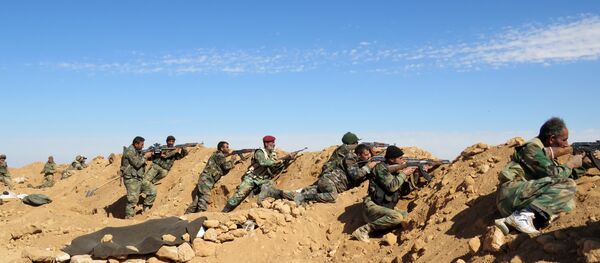According to the author, in order to achieve the goals, Washington should build up support for "mainstream Syrian opposition forces" like the Free Syrian Army (FSA) and use them against Daesh militants.
Harrison made a foray into the history of US actions during the Syrian conflict. He explained that in the course of the war Washington provided air support to the Syrian Kurdish YPG forces in the battle against Daesh. At the same time, they never provided a similar level of support to opposition fighters.
The Russian withdrawal from Syria seems to be a signal to President Bashar Assad that Moscow is not interested in being dragged into an open-ended conflict, but instead supports the ceasefire and seeks a political solution.
"With the conflict in the western part of Syria partially frozen due to Russia’s involvement, the center of gravity of the civil war is likely to now shift eastward to ISIS controlled areas. […] What this means is that whoever is successful in liberating territory from ISIS potentially wins the greatest competitive advantages in the broader battle for Syria," the article read.
At the same time, the author wrote, the US should expect a race to retake Raqqa, the de-facto capital of the Daesh "caliphate."
"The problem for the United States is that it doesn’t have sufficient ground forces in Syria to really ramp up its battle against ISIS," the analyst pointed out.
The US should redirect its efforts to Syrian opposition groups which could be effective in fighting Daesh on the ground, he added.
"Prior to Russia’s involvement there was no real diplomatic process, and no prospects for a cease-fire. While Russia’s fortification of Assad clearly contravened the stated policy of the United States, it created an opportunity for a different strategy [for the US to battle Daesh]," Harrison wrote.




